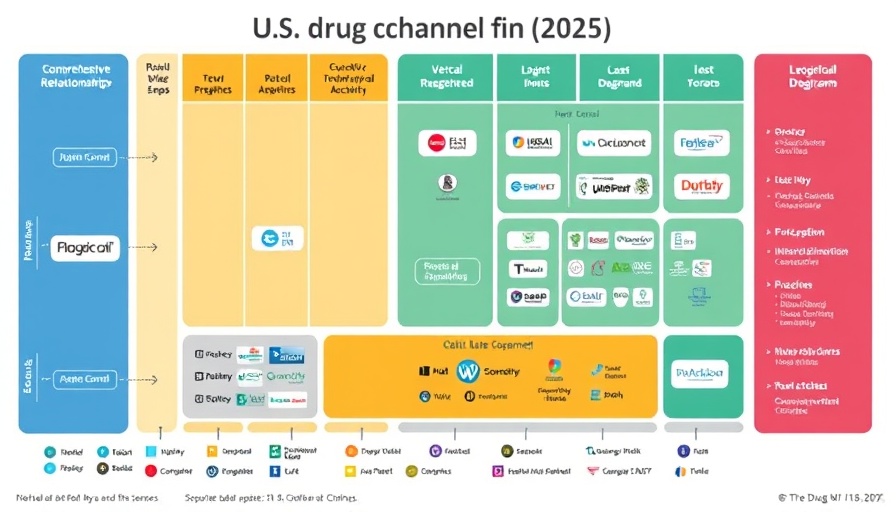
Understanding Vertical Integration in Healthcare
For parents navigating the healthcare landscape, the term "vertical integration" might sound complex, but its implications are crucial for families. Vertical integration refers to the various ways healthcare companies—such as insurers, pharmacy benefit managers (PBMs), specialty pharmacies, and providers—combine their services to provide coordinated care. In 2025, this structure is evolving rapidly and significantly impacts healthcare decisions, especially in areas like addiction treatment and recovery services.
Why This Matters to Families
Parents often worry about their children’s health and wellbeing, and understanding how these companies work together can inform choices about treatment options. For example, a comprehensive recovery program may involve pharmaceutical support, counseling, and behavioral health services. Families can be better prepared to advocate for the right treatment when they understand how integrated systems function.
Predicting the Future of Addiction Treatment
As healthcare systems continue to integrate, the availability of diverse treatment options—like outpatient treatment, inpatient rehab, and holistic approaches—will likely increase. Families should be aware that these shifts may affect their access to care, such as drug rehabilitation or dual diagnosis treatment services, pivotal for those facing substance abuse challenges.
Counterarguments: Is More Always Better?
While integrated systems promise improved efficiency and coordinated care, some experts voice concerns about potential monopolistic behaviors. As healthcare becomes more consolidated, it raises questions about the quality of care and whether families still have choices. It’s essential for parents to be vigilant and ensure that they have access to multiple treatment options and support networks.
The Importance of Knowledge in Recovery
Understanding the landscape of recovery services can empower families. Knowledge about addiction counseling, recovery programs, and available support groups—like Alcoholics Anonymous or SMART Recovery—can connect parents with valuable resources. Staying informed about ongoing developments in addiction therapy options, detoxification processes, and intervention services can pave the way for timely and effective support for your loved ones.
Practical Tips for Parents
Here are some actionable steps parents can take when seeking addiction treatment for their children:
- Educate Yourself: Familiarize yourself with different treatment approaches such as cognitive-behavioral therapy and medication-assisted treatment.
- Connect with Support Groups: Engage with local addiction support groups for real-life guidance and experiences.
- Advocate for Comprehensive Care: Ensure your healthcare provider offers a holistic view of addiction treatment that includes family therapy and aftercare.
Join the Conversation: Treatment Approaches Matter
It's vital for families to stay engaged with the evolving mental health and addiction treatment landscape. As trends develop, sharing experiences can help raise awareness and improve resources. Consider connecting with other parents for discussion or learning opportunities on substance abuse recovery.
In our changing healthcare landscape, your role as an informed parent is more critical than ever. By understanding vertical integration and its implications on treatment options, you can ensure that your family has the best possible care options in addiction recovery. Remember, being proactive about knowledge leads to better health and support for our young ones.
 Add Row
Add Row  Add
Add 




 Add Row
Add Row  Add
Add
Write A Comment